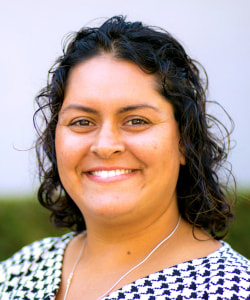As a member of the CoATTEND project, Mendoza is helping co-create professional development frameworks that foster equity in math classrooms with teachers, community members, and researchers. Her scholarship intersects a sociocultural approach to learning sciences, critical race theory, and participatory action research to support educators in developing practices that challenge dominant ideologies and re-imagining spaces of healing and transformation.
van Es is a learning scientist who studies teacher learning and the design and improvement of teacher preparation and professional development. She currently leads two projects funded by NSF and the UC Office of the President to develop teachers’ noticing practices to advance equity in mathematics education and to better prepare teacher candidates to support multilingual learners. She is the co-founder of the UCI Teacher Academy that provides high-quality professional development to the greater OC education community. Abstract A dominant paradigm for research on teacher professional development has centered teacher learning as created in and through practice. Critical scholars argue for the need to grapple productively with the complexities of teaching in the power-laden contexts of schooling. This involves continual reflection on the ways that teaching reinforces structural inequalities. We articulate the notion of historical self to describe noticing as ground in both personal and social histories that are situated in hierarchies of power and dominant ideologies. We draw on data from a three-year, multi-site project that engaged teachers, community members, and researchers in co-developing a noticing for re-humanizing framework. Through the narrative of Shannon, a project participant-researcher, we illuminate as part of the historical self: (1) the interconnectedness of both personal and social histories in and through moment-to-moment interactions and their relation to what and how we notice; (2) the vulnerability embedded in rupturing embedded assumptions in these histories; and (3) the importance of understanding what we do not notice, as tied to our privilege. Comments are closed.
|
Resources for:
|
|



